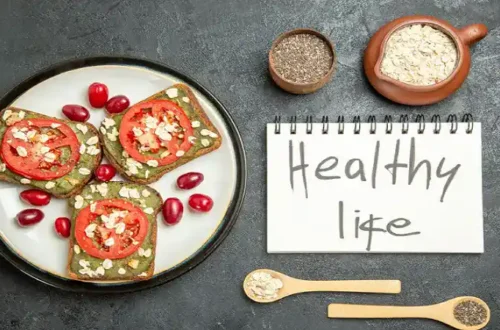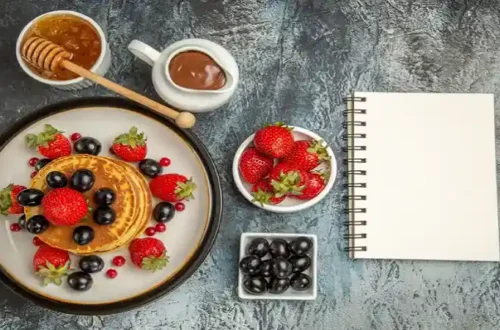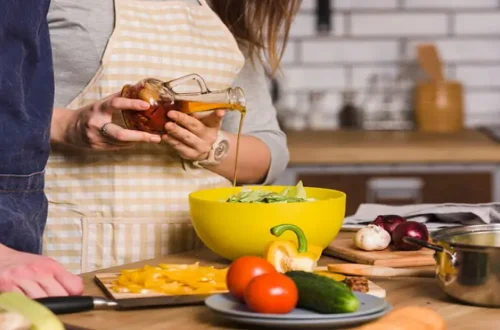Recipes are more than just lists of ingredients and instructions; they are the blueprints of culinary art, the foundations of cherished memories, and often the starting point of lifelong traditions. The concept of “Heartumental,” a blend of heartfelt and fundamental, perfectly captures why recipes hold such a profound place in our lives. This article delves into the significance of recipes, exploring their emotional, practical, and cultural impacts. Why Is A Recipe Important Heartumental
1. The Emotional Connection: Recipes as Heartfelt Heirlooms
Recipes have the unique ability to transcend generations, serving as tangible connections to our loved ones, past and present. Imagine your grandmother’s secret pie recipe or a handwritten note of your mom’s favorite cookie recipe—each one carries a piece of their essence, a memory etched in time.
- Family Traditions and Memories: Recipes often evoke powerful memories. The smell of freshly baked bread, the taste of a holiday dish, or the sight of a familiar dessert can transport us back to cherished moments with family and friends. Recipes are not just about food; they are about the people who make and share them. They encapsulate family traditions and are often passed down as precious heirlooms.
- Comfort in Familiarity: In times of joy, stress, or sorrow, cooking a familiar recipe can provide comfort and solace. Preparing a dish that reminds us of home can be incredibly heartwarming, especially when we are far from loved ones. It’s a way of bringing a piece of home with us wherever we go.
- Celebrating Life’s Milestones: Recipes often play a central role in celebrations—birthdays, weddings, holidays, and more. They symbolize the coming together of loved ones, the sharing of joy, and the creation of memories. A recipe that has been part of these moments becomes heart mental, holding emotional value far beyond its ingredients. Why Is A Recipe Important Heartumental
2. The Practicality of Recipes: Guiding Us Through the Kitchen
At their core, recipes serve a practical purpose: they provide a clear path to creating a dish. Whether you’re a novice cook or an experienced chef, a recipe acts as a guide, ensuring that you have the right steps to follow to achieve the desired outcome.
- Consistency and Accuracy: Recipes provide a tried-and-tested framework, ensuring that the dish turns out the same every time. This consistency is essential, especially in baking, where precision is key. A well-written recipe minimizes the guesswork and reduces the chances of mistakes, leading to reliable results.
- Learning New Skills: For those learning to cook, recipes are invaluable tools. They teach techniques, introduce new ingredients, and help build confidence in the kitchen. Following a recipe allows beginners to expand their culinary repertoire and gradually develop their skills.
- Time Management: Recipes often include preparation and cooking times, helping cooks plan and manage their time effectively. Knowing how long a dish will take to prepare is crucial for scheduling meals, especially when cooking for special occasions or coordinating multiple dishes.
3. Recipes as Cultural and Historical Artifacts
Recipes are not just about food; they are reflections of culture, history, and identity. They tell stories of migration, adaptation, and tradition, serving as historical records of how people lived, what they valued, and how they celebrated life.
- Preserving Cultural Heritage: Many traditional recipes have been passed down through generations, preserving the flavors, techniques, and ingredients unique to a particular culture. They provide a link to our ancestors, allowing us to experience the tastes and aromas that were part of their daily lives.
- Adapting to Change: Recipes also evolve, adapting to new ingredients, dietary preferences, and cultural influences. This adaptability showcases the resilience and creativity of cultures in preserving their culinary heritage while embracing change.
- Bridging Generations: Cooking a family recipe can be a way of honoring our heritage and passing it on to the next generation. It’s a bridge that connects the old with the new, allowing younger family members to experience and appreciate the culinary traditions of their forebears.
4. Recipes as Creative Outlets: The Art of Personalization
While recipes provide a structure, they also leave room for creativity and personalization. A recipe can be a starting point, inspiring cooks to put their spin on a dish, adjust flavors, or experiment with new ingredients.
- Personal Expression: Cooking is a form of personal expression, and recipes can be customized to reflect one’s tastes and preferences. Adding a twist to a classic recipe allows cooks to make it their own, creating a unique dish that tells their personal story.
- Inspiring Innovation: Recipes often inspire innovation in the kitchen. Chefs and home cooks alike use recipes as jumping-off points to experiment and create new dishes. This spirit of experimentation keeps the culinary world vibrant and ever-evolving.
- Sharing Your Creations: In today’s digital age, recipes are shared widely through social media, blogs, and cooking apps. Sharing a recipe is like sharing a piece of yourself, inviting others to try your creation and connect with your culinary journey.
5. The Therapeutic Value of Recipes: Cooking as a Form of Self-Care
Cooking can be a therapeutic activity, and following a recipe can provide a sense of purpose and mindfulness. The process of measuring, chopping, stirring, and tasting engages the senses and allows for a meditative focus on the present moment.
- Stress Relief and Mindfulness: Cooking requires concentration and attention to detail, which can help take your mind off worries and stress. The rhythmic motions of cooking—chopping vegetables, stirring a pot, kneading dough—can be calming and meditative.
- Sense of Accomplishment: Completing a recipe successfully provides a sense of accomplishment and satisfaction. Serving a meal you’ve prepared from scratch can boost your mood and self-esteem, especially when it’s enjoyed by others.
- Nourishing the Body and Soul: Cooking from a recipe is not just about feeding the body; it’s also about nurturing the soul. Preparing a wholesome meal for yourself or others is an act of care and love, making the experience deeply fulfilling. Why Is A Recipe Important Heartumental
Conclusion: Recipes as Heartumental Treasures
Recipes are more than just instructions for cooking; they are heart-mental treasures that connect us to our past, guide us in the present, and inspire us for the future. They are windows into cultures, vehicles for creativity, and sources of comfort and joy. Whether passed down through generations or discovered anew, each recipe carries a story, a memory, and a piece of the heart. Why Is A Recipe Important Heartumental
In a world that constantly changes, recipes offer a comforting sense of continuity and connection. They remind us of who we are, where we come from, and what we hold dear. So the next time you cook, remember that you’re not just following a recipe—you’re partaking in a heart-mental journey that nourishes both the body and the soul.





